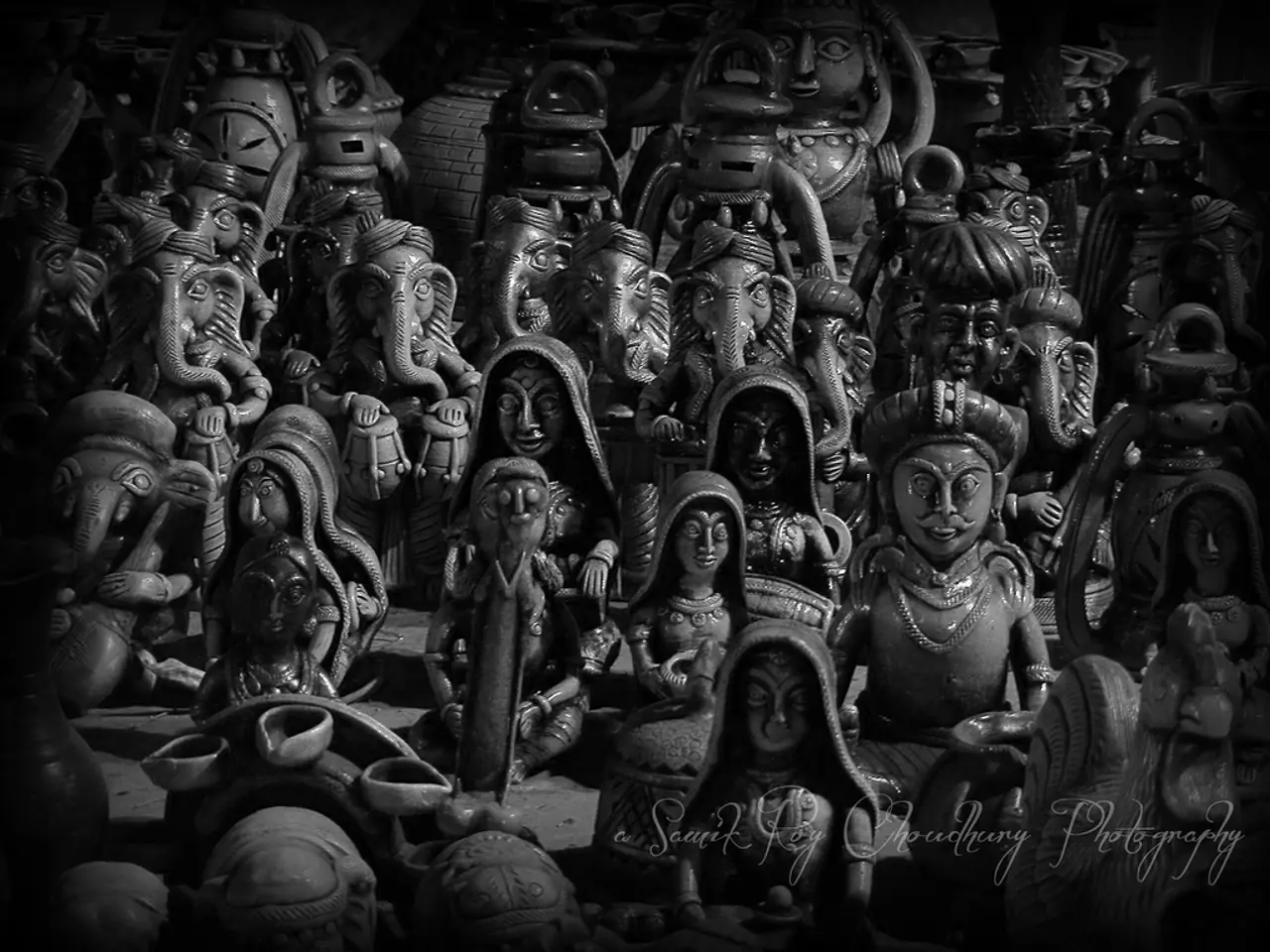The Essential Facts About the Historical Figure Keōua Kū'ahu'ula, Whose Life Sparked the Military Leader's Name Keoua
Keoua's Life and Conflict with Kamehameha
Keoua Kuahuula, a notable figure in Hawaiian history, was a significant player in the rise of King Kamehameha I. Born as the son of King Kalani'ōpu'u and Kānekapōlei, Keoua held a strong claim to the throne of the Kingdom of Hawaii[1][3].
Early Life and Family Ties
Keoua had two famous brothers: an older half-brother Kīwala'ō, who inherited the kingdom from their father, and Keoua Pe'eale, his twin brother. The brothers were part of a close-knit royal family, with Keoua being the favorite wife of King Kalani'ōpu'u[4].
Conflict and Power Struggles
As Kamehameha's ambitions for unifying the Hawaiian Islands grew, Keoua emerged as a formidable rival claimant to the throne. The conflict between the two cousins was part of a broader struggle for dominance among the major kingdoms during the late 18th century. Keoua, as a conservative traditionalist, opposed modernity and sought to maintain his power[2].
The battle between Keoua and Kamehameha reached its peak in the Battle of Moku'ōhai in 1782, where Keoua lost. Following the defeat, Keoua fled to Ka'ū with his remaining army[5].
Losses and Setbacks
In 1790, Keoua suffered a significant blow when the majority of his army was lost to a lava attack[6]. Despite these setbacks, Keoua continued to challenge Kamehameha for sovereignty over the island until his demise in 1791, when he was killed by Kamehameha at Pu'ukoholā[7].
Keoua in Literature and Popular Culture
Keoua's story has been immortalized in various forms of literature and media. The second-in-command of Captain Cook, Lieutenant James King, wrote about Keoua in "A Voyage to the Pacific Ocean." In the historical series "Chief of War," Keoua's character is combined with his brother Kīwala'ō into a single character, played by Cliff Curtis. This portrayal emphasizes the strategic and familial dynamics at play during this period of Hawaiian history[1][3].
In "Chief of War," Keoua is depicted as someone who feels wronged by Kamehameha, his cousin, and is portrayed as a silent character who never speaks English[8].
The Aftermath of Keoua's Death
After Keoua's death, Kamehameha's rule extended over all of Hawai'i, marking the beginning of a new era in the Hawaiian Islands' history[9]. Keoua's legacy continues to be an important topic in the study of Hawaiian history, offering insights into the complex political landscape of the late 18th century.
[1] "Chief of War." IMDb, IMDb.com, www.imdb.com/title/tt10551404/. [2] "Chief of War." Wikipedia, Wikimedia Foundation, Inc., en.wikipedia.org/wiki/Chief_of_War_(TV_series). [3] "Keoua." Wikipedia, Wikimedia Foundation, Inc., en.wikipedia.org/wiki/Keoua. [4] "Kalani'ōpu'u." Wikipedia, Wikimedia Foundation, Inc., en.wikipedia.org/wiki/Kalani%CA%BBopu%CA%BBu. [5] "Battle of Moku'ōhai." Wikipedia, Wikimedia Foundation, Inc., en.wikipedia.org/wiki/Battle_of_Moku%CA%BBo%CA%BBai. [6] "Lava attack of 1790." Wikipedia, Wikimedia Foundation, Inc., en.wikipedia.org/wiki/Lava_attack_of_1790. [7] "Pu'ukoholā." Wikipedia, Wikimedia Foundation, Inc., en.wikipedia.org/wiki/Pu%CA%BBukohola%CA%BBa. [8] "Keoua." Chief of War Wiki, Fandom, chief-of-war.fandom.com/wiki/Keoua. [9] "Unification of the Hawaiian Islands." Wikipedia, Wikimedia Foundation, Inc., en.wikipedia.org/wiki/Unification_of_the_Hawaiian_Islands.
- Despite Keoua's losses and setbacks in his conflict with Kamehameha, including the Battle of Moku'ōhai and the lava attack of 1790, he continued to watch for opportunities to reclaim the throne.
- In the realm of both art and entertainment, Keoua's life and struggles have been depicted in works like "Chief of War," where his character, a silent and passive figure, portrays the prevailing sense of style and culture during his time.
- The political landscape of the late 18th century, as reflected in the power struggles between Keoua and Kamehameha, was not limited to Hawaiian affairs, as it also encompassed war-and-conflicts and general-news events happening across the globe.
- Keoua's story, part of the rich tapestry of Hawaiian culture and history, has been chronicled by many, such as Lieutenant James King in "A Voyage to the Pacific Ocean."
- News of Keoua's death in 1791 marked a significant turning point in the history of the Hawaiian Islands as Kamehameha's rule, which spanned various aspects of entertainment, politics, and culture, expanded across the islands.








